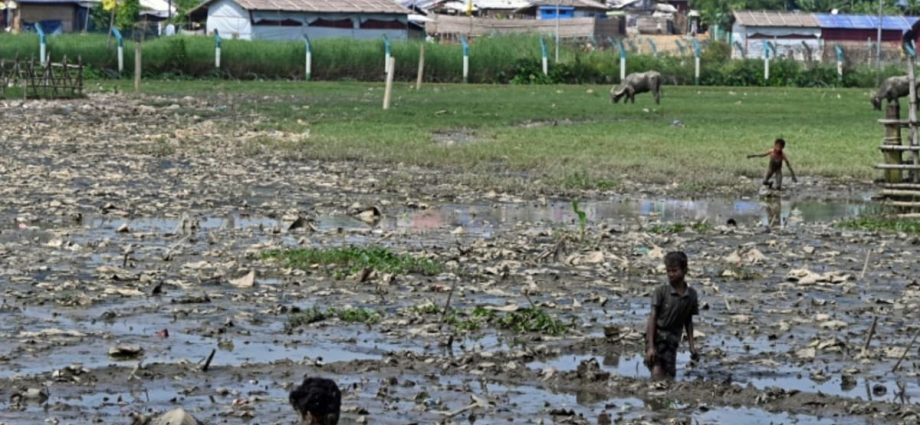
“IT IS VERY HURTFUL”
Refugees acknowledge that violence and criminal activity exist within the Kutupalong camp network – though it is the Rohingya themselves who are its chief victims.
The Arakan Rohingya Salvation Army (ARSA), an Islamist militant group that has clashed with Myanmar’s army in the past, has sought to entrench its control over the camps – even murdering civil society leaders that could challenge its authority.
Southern Bangladesh is also a hotspot for the regional methamphetamine trade originating in Myanmar, and Rohingya are often recruited as drug couriers for the influential local kingpins who control distribution networks.
The trade predates the 2017 Rohingya influx, but refugees say they have been largely blamed for the spread of drugs in Bangladesh, and condemned as criminals regardless of their involvement.
“Out of a million people, there are a handful of bad apples, but that doesn’t justify calling the entire refugee community criminal,” Rohingya refugee Abdul Mannan told AFP.
“It is very hurtful how we are being portrayed.”
This year, a stuttering economy has saddled Bangladeshis with rising food prices and lengthy nationwide blackouts that have occasionally sparked violent protests.
Bangladesh also suffered its worst flooding in living memory during the latest monsoon, with millions of homes inundated and numerous villages cut off from the rest of the country.
The resulting hardships have helped erode the charitable sentiment that once compelled Bangladeshis to flock to the camps and offer help to refugees.
“The compassion that was demonstrated in 2017 and subsequent years has dwindled. It has been replaced with xenophobic rhetoric,” said Ali Riaz, a professor of political science at Illinois State University who has written extensively on the Rohingya crisis.
“Fear and hatred are the key features,” he told AFP. “Unfortunately, these are not in short supply.”

